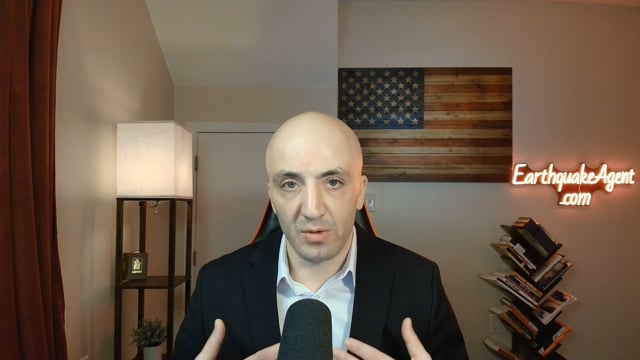Frequently Asked Questions About Earthquake Insurance
- Is Earthquake Insurance Required? Here’s the Truth for Homeowners
-
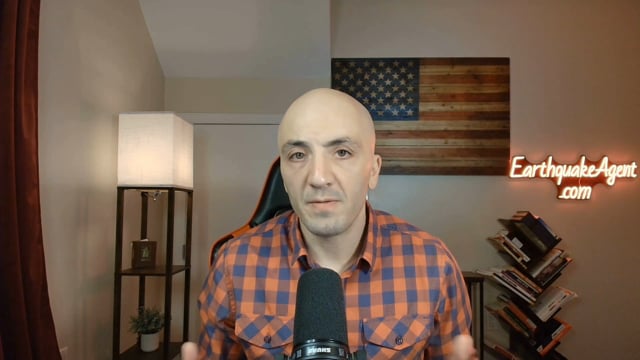
When you’re buying a home, you’ll likely be required to carry homeowners insurance or fire insurance before closing. But what about earthquake insurance—is it required by mortgage companies?
The short answer is: usually not. But there’s more to the story, and understanding the details could make a big difference in how you protect your property.
Do Mortgage Lenders Require Earthquake Insurance?
In most cases, mortgage lenders do not require you to purchase earthquake insurance to secure financing on a home—even in earthquake-prone areas like California. Unlike standard homeowners or fire insurance, earthquake coverage is considered optional in the eyes of most lenders.
However, there are exceptions.
When Might Earthquake Insurance Be Required?
While rare, we’ve seen certain lenders in high-risk zones require earthquake insurance as part of the mortgage agreement—especially for homes located near known fault lines or in regions with a history of seismic activity.
But overall, these instances are not the norm. In the vast majority of transactions, it’s up to you—the homeowner—to seek out and secure earthquake protection.
Why This Matters
Just because earthquake insurance isn’t required doesn’t mean it’s not necessary.
🏠 Your home is likely your largest investment
🌍 Earthquakes are unpredictable and potentially catastrophic
💸 Without earthquake coverage, you could face tens or hundreds of thousands of dollars in uninsured damageIf you’re relying on your regular homeowners policy to cover earthquake damage, here’s the hard truth: it won’t. Earthquake damage is excluded from standard homeowners insurance in nearly every case.
What Should Homebuyers Do?
If you’re purchasing a home—especially in a state like California, Oregon, or Washington—it’s wise to secure standalone earthquake insurance whether it’s required or not.
At Earthquake Agent, we help buyers and homeowners:
✔️ Compare earthquake insurance carriers
✔️ Customize policies based on property and risk level
✔️ Get coverage in place before the next big quake hits
Final Thoughts: Optional Doesn’t Mean Unnecessary
While most lenders don’t require earthquake insurance, that doesn’t mean you should skip it.
Remember: once an earthquake happens, you can’t buy or modify coverage until moratoriums are lifted. By then, it’s too late.📍 Get peace of mind today—start your free quote at 👉 EarthquakeAgent.com
- Does Earthquake Insurance Have a Waiting Period? Here’s What Homeowners Need to Know
-
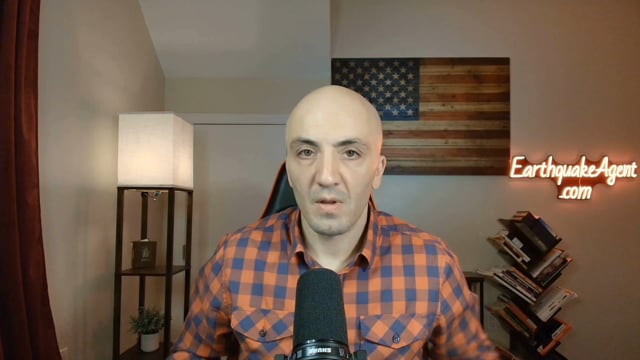
When considering earthquake insurance, a common question many homeowners ask is:
“Is there a waiting period before my earthquake insurance goes into effect?”With certain insurance types—like flood insurance—it’s common to have a 30-day waiting period before the policy becomes active. But with earthquake insurance, the rules are different. Let’s break it down.
Is There a Waiting Period for Earthquake Insurance?
Generally, no—earthquake insurance policies do not have a standard waiting period.
That means your coverage typically begins as soon as your policy is issued. This is because earthquakes are unpredictable, and insurance carriers recognize the need for immediate coverage once a policy is purchased.However, there’s an important exception to be aware of.
What Is an Earthquake Insurance Moratorium?
While there may be no traditional waiting period, insurance companies can impose a moratorium in certain situations. A moratorium is a temporary suspension on selling new policies or making changes to existing ones after a seismic event.
🔒 When Does a Moratorium Happen?
If an earthquake with a magnitude of 5.0 to 5.5 or higher occurs in your area, most insurance companies will temporarily:
- Stop issuing new earthquake insurance policies
- Prohibit changes to existing policies (such as lowering your deductible or increasing coverage)
This is because earthquakes are often followed by aftershocks, which can sometimes be even more damaging than the initial quake. Insurance companies want to avoid taking on new risk while the likelihood of additional damage is high.
Why You Shouldn’t Wait Until It’s Too Late
Waiting until an earthquake hits to buy a policy won’t work—by then, it’s too late. If you attempt to purchase a policy after a major quake, you may find that:
❌ No new policies are being written
❌ You can’t make desired changes to your existing policy
❌ You’re left unprotected during a high-risk periodThis is why it’s critical to secure your earthquake insurance before an event occurs—not after.
How to Get Earthquake Insurance Before the Next Quake
At Earthquake Agent, we help homeowners:
✅ Understand their options
✅ Customize coverage to fit their property and risk level
✅ Secure standalone earthquake policies with superior protectionIf you’re in an earthquake-prone area like California, Oregon, or Washington, now is the time to get protected.
📍 Start your free quote today at 👉 EarthquakeAgent.com
Final Thoughts
Earthquake insurance doesn’t come with a waiting period—but a moratorium can stop you from getting coverage when you need it most.
Don’t leave your home and finances at risk. Get your policy in place before the ground starts shaking. - What Is Standalone Earthquake Insurance? (And Why You Might Need It)
-
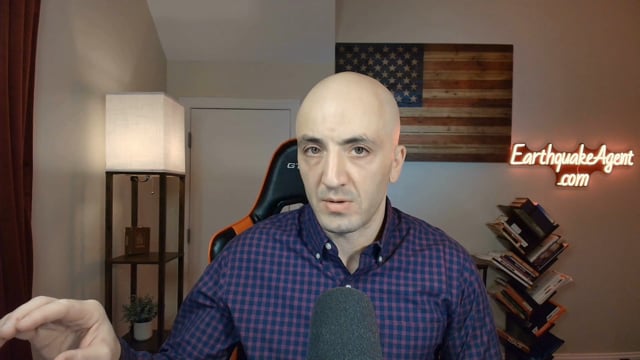
When it comes to protecting your home, most people rely on their standard home insurance policy. But here’s the reality: most home insurance policies do not cover earthquake damage. That’s where standalone earthquake insurance comes in—and if you live in an earthquake-prone area, it might be one of the smartest decisions you make.
What Is Standalone Earthquake Insurance?
Standalone earthquake insurance is exactly what it sounds like—an independent policy that specifically covers damage from earthquakes. It is not bundled with your existing home, fire, or landlord insurance.
This means you can keep your current coverage with big-name companies like:
🏠 State Farm
🏠 Farmers
🏠 Allstate
🏠 Or any other provider you trust…while getting your earthquake insurance separately from a specialized company that focuses solely on earthquake coverage.
Why Choose a Standalone Policy Instead of Bundled Coverage?
Many traditional insurance carriers offer limited earthquake endorsements—but these are often expensive, restrictive, and offer less-than-ideal coverage.
Here’s why standalone earthquake insurance is often the better choice:
✅ More Comprehensive Coverage – Specialized carriers understand earthquake risks and offer better protection options.
✅ Lower Premiums – In many cases, standalone policies are actually more affordable than bundled add-ons.
✅ Flexibility – You get to keep your current home insurance provider while choosing the best earthquake coverage available on the market.
Can I Have Two Separate Policies?
Absolutely. In fact, that’s the whole idea. You can:
- Keep your homeowners insurance where it is
- Add a standalone earthquake policy from a dedicated provider
This setup ensures you’re fully protected without overpaying or being stuck with a one-size-fits-all policy.
How to Get Standalone Earthquake Insurance
At EarthquakeAgent.com, we specialize in helping homeowners find the best standalone earthquake insurance options—tailored to your property and your budget.
✔️ Visit our Learning Center to explore more helpful resources
✔️ Get a customized quote by filling out a short form on our website
✔️ Let us walk you through your options with no added fees on residential policies
Final Thoughts
If you live in an earthquake-prone area, relying solely on your home insurance isn’t enough. Standalone earthquake insurance gives you the power to choose the right protection from the right provider—without switching everything else.
📢 Get started today at 👉 EarthquakeAgent.com
We’re here to help you protect your most valuable investment—your home. - How Much Earthquake Insurance Coverage Do You REALLY Need?
-
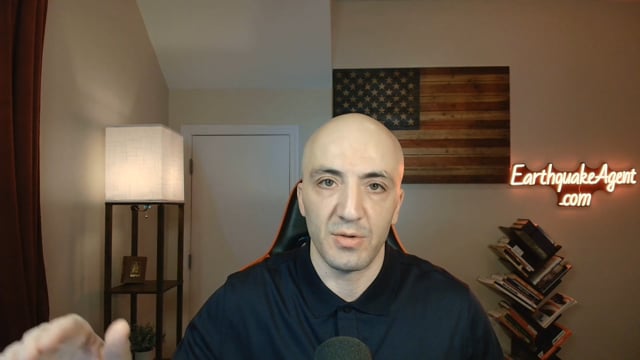
One of the most common questions homeowners ask is:
“How much earthquake insurance coverage should I have?”The answer depends on several factors, but one thing is clear—being underinsured could cost you thousands if disaster strikes. In this guide, we’ll break down how to determine the right amount of coverage so you can protect your home and finances.
1. Dwelling Coverage: The Foundation of Your Policy
Your dwelling coverage is the most important part of your earthquake insurance policy. Insurance companies require that this coverage be at least equal to your home insurance dwelling coverage—or higher.
🔹 Example: If your home insurance policy has $500,000 in dwelling coverage, your earthquake insurance policy must have at least $500,000. You cannot select a lower amount, like $100,000, for earthquake coverage.
✅ You CAN choose more dwelling coverage than your home insurance provides, but you CANNOT choose less.
2. Customizing Other Earthquake Insurance Coverages
Unlike dwelling coverage, the other parts of an earthquake insurance policy are flexible. You can customize these based on your needs:
✔️ Other Structures Coverage
Covers detached garages, fences, sheds, and other structures on your property.
✔️ Personal Property Coverage
Protects belongings inside your home, including furniture, electronics, and valuables.
✔️ Loss of Use Coverage
Covers temporary living expenses if your home is uninhabitable after an earthquake. This could include hotel stays, meals, and rental costs.
💡 Pro Tip: When customizing these coverages, consider how much it would cost to replace everything you own and how long you’d need alternative housing if your home were damaged.
3. Why Customization Matters
Many homeowners underestimate the amount of coverage they need. Without proper protection, you might pay out of pocket for:
❌ Major repairs to your home
❌ Replacing damaged personal belongings
❌ Temporary housing expenses💡 Working with an agent can help! At Earthquake Agent, we ask the right questions to identify what matters most to you and ensure you have the right level of coverage.
4. Get the Right Earthquake Insurance Policy Today
Every home is different, and your earthquake insurance should be tailored to your unique needs. The worst time to realize you’re underinsured is AFTER an earthquake hits.
📢 Want expert help selecting the right coverage?
🔍 Start your quote today at 👉 EarthquakeAgent.com - Does It Cost Less to Buy Earthquake Insurance Direct from the Company or Through Earthquake Agent?
-
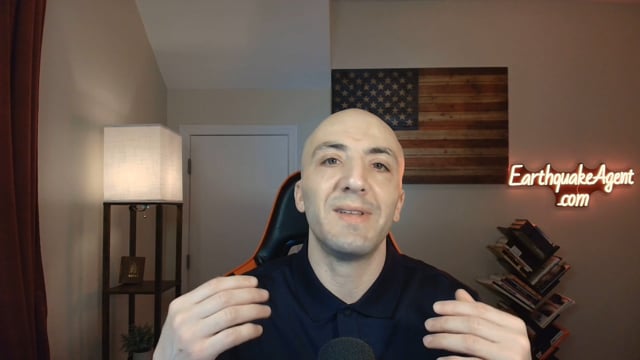
Many homeowners shopping for earthquake insurance ask the same question:
“Will I save money by buying directly from the insurance company instead of using an agent?”The simple answer? No.
Whether you buy your earthquake insurance directly from the insurance company or through Earthquake Agent, the premium is exactly the same—you won’t pay a penny more.
However, while the cost stays the same, the benefits of working with an agent can make a huge difference. Let’s break it down.
Does Buying Direct Save You Money?
Some earthquake insurance companies offer direct-to-consumer policies, while others only sell through agents. But regardless of how you buy, the premium remains the same.
🚫 No Extra Fees: Earthquake Agent does not charge any additional fees for residential earthquake insurance policies.
💰 Same Price, More Value: You pay the exact same premium, but with added benefits when working with an agent.
The Advantage of Using Earthquake Agent
If the cost is identical, why should you work with an agent instead of buying direct? Here’s what you gain:
1. Customized Coverage That Fits Your Needs
Most homeowners don’t know the best way to structure their earthquake insurance policy. An agent helps you:
✔️ Choose the right dwelling coverage (so you’re not underinsured or overpaying)
✔️ Select the best deductible for your financial situation
✔️ Add or adjust optional coverages like personal property and loss of useBuying direct means you’re on your own to figure out what’s best, which can lead to costly mistakes.
2. Unbiased Choice Between Insurance Companies
When you buy direct, you’re limited to one company’s options—but not all policies are the same!
Earthquake Agent provides:
✅ Multiple carrier comparisons so you can choose the best price and coverage
✅ Unbiased advice that puts your needs first, not just one insurer’s products3. Personalized Support & Claims Assistance
The biggest advantage of working with Earthquake Agent? Support during the claims process.
🚨 In the event of a major earthquake, insurance call centers will be overwhelmed.
- Long wait times
- Delays in processing claims
- Confusion over policy coverage
With an agent, you don’t have to go through this alone. We walk you through the claims process step by step, making sure you get the help you need when it matters most.
The Bottom Line: Same Price, More Support
Whether you buy direct or through Earthquake Agent, you’ll pay the same premium. The difference?
✔️ Expert guidance to ensure the best policy for your needs
✔️ Customized coverage options to avoid gaps in protection
✔️ Access to multiple carriers for unbiased choice
✔️ Dedicated claims support when disaster strikes📢 Want expert help with your earthquake insurance—at no extra cost?
Get a free quote today at 👉 EarthquakeAgent.com - Does Earthquake Insurance Cover Flood Damage?
-
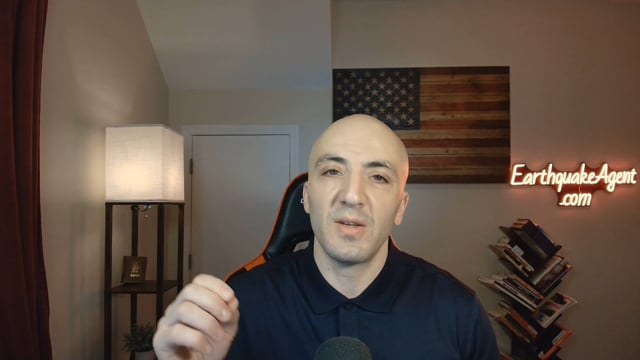
One of the most common questions homeowners ask is:
“If an earthquake causes a flood, will my earthquake insurance policy cover the damage?”The answer? No.
Earthquake insurance does not cover flood damage—even if the flood was triggered by an earthquake. Understanding this coverage gap is crucial to ensuring your home is fully protected from natural disasters.
When Does an Earthquake Lead to Flooding?
An earthquake can cause secondary disasters that result in flooding, such as:
🌊 Tsunamis or tidal waves triggered by seismic activity
💥 Dam failures that release massive amounts of water
🚰 Broken water mains leading to street and basement floodingWhile these events may start with an earthquake, the actual damage is caused by flooding—and that is where your coverage matters.
Why Earthquake Insurance Doesn’t Cover Flood Damage
Insurance companies classify earthquake damage and flood damage as two separate risks.
- Earthquake insurance covers structural damage caused by the shaking of the ground.
- Flood insurance covers water-related damage, regardless of the source.
Even if the flood was triggered by an earthquake, it is still classified as flood damage—which means your earthquake insurance policy will not cover it.
How Can You Protect Yourself?
To fully protect your home, consider adding flood insurance to your coverage. The National Flood Insurance Program (NFIP) and private insurers offer flood policies that specifically cover:
✔️ Structural damage from floodwaters
✔️ Water damage to personal property
✔️ Cleanup and repair costs after floodingIf you live in an area prone to earthquakes and flooding, having both earthquake and flood insurance is essential for full financial protection.
Don’t Get Caught Without the Right Coverage!
Many homeowners assume their earthquake insurance will cover all disasters related to an earthquake—but that’s not the case.
📢 Make sure you’re fully covered before the next disaster strikes!
🔍 Get a free earthquake insurance quote today at 👉 EarthquakeAgent.com - Does Earthquake Insurance Coverage Have to Match My Home Insurance Coverage?
-
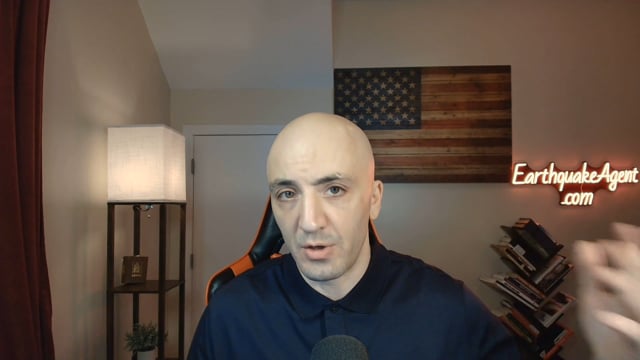
When it comes to earthquake insurance, one of the most common questions homeowners ask is:
“Does my earthquake insurance coverage have to match my home insurance coverage?”The answer? Not exactly. While some aspects need to align, you have flexibility in others. Let’s break it down.
What Coverage Must Match?
The dwelling coverage on your earthquake insurance policy must be at least equal to the dwelling coverage amount on your home insurance policy.
📌 Where to Find This:
Look at your home insurance policy under Coverage A—this is the amount that must match (or be higher) on your earthquake insurance policy.However, while you can increase the dwelling coverage on your earthquake policy, you cannot lower it below what your home insurance provides.
Customizable Earthquake Insurance Coverages
Unlike home insurance, earthquake insurance gives you flexibility in how you protect other parts of your property:
✅ Other Structures (e.g., detached garages, pool, patios, fences, sheds)
✅ Personal Property (furniture, electronics, valuables)
✅ Loss of Use (temporary living expenses if your home is unlivable)All of these are optional with earthquake insurance, meaning you can customize your coverage based on your needs and budget.
What’s Missing from Earthquake Insurance?
One key coverage that home insurance provides but earthquake insurance does not is Extended or Additional Replacement Cost.
Why Is This Important?
If a major disaster (like a wildfire or earthquake) causes widespread damage, the cost of labor and materials can skyrocket due to demand. Extended replacement cost coverage helps offset these price surges, typically offering 25%, 50%, or even 100% more coverage beyond your standard dwelling amount.
Since earthquake policies don’t offer this protection, homeowners might consider setting a higher dwelling coverage amount to help account for rising construction costs after a disaster.
Higher Dwelling Coverage = Higher Deductible
One thing to keep in mind: earthquake insurance deductibles are a percentage of your dwelling coverage amount—not a fixed dollar amount.
🔹 Example: If your earthquake policy has a 10% deductible and your dwelling coverage is $500,000, your out-of-pocket deductible would be $50,000 before coverage kicks in.
This means increasing your dwelling coverage will increase your deductible as well, so finding the right balance is key.
Get the Right Earthquake Coverage for Your Home
Understanding these differences can help you choose the right earthquake insurance policy and avoid costly mistakes.
📢 Want to protect your home from earthquake damage?
Get a free quote today at 👉 EarthquakeAgent.com - What Is Other Structures? Earthquake Insurance Explained!
-
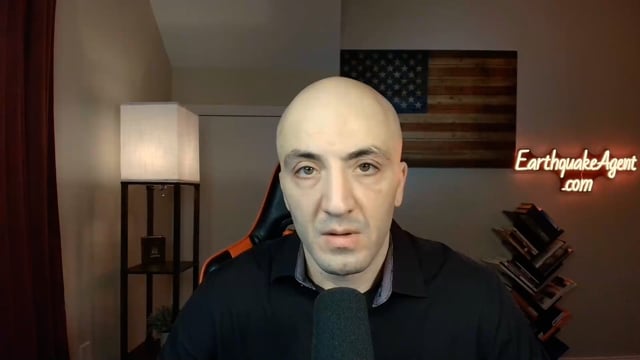
When it comes to earthquake insurance, many homeowners overlook a key component of their policy: Other Structures coverage. Understanding what qualifies as other structures, what is covered, and any sub-limits that apply can help ensure you have the right protection in place.
In this guide, we’ll break down: ✅ What Other Structures coverage is ✅ Common examples of covered structures ✅ Sub-limits that may apply ✅ A common misconception about driveways and garages
What Is Other Structures Coverage?
According to earthquake insurance policies, Other Structures coverage applies to structures on the insured property that are separate from the main dwelling. The key criteria are:
- It must be set apart from the dwelling by clear space.
- It can include structures connected to the dwelling, as long as they are outside the foundation walls and are not necessary for the home’s structural integrity or habitability.
Examples of Other Structures
✔️ Detached guest houses
✔️ Detached garages
✔️ Patios & barbecue areas
✔️ Gazebos
✔️ Retaining walls
✔️ Fences
✔️ Backyard decksSpecial Consideration: Pools, Spas & Hot Tubs
A common question homeowners ask is: Are pools, spas, and hot tubs covered under Other Structures? The answer is yes, but with sub-limits that vary by carrier.
✔️ Palomar – Covers up to $50,000 for pools, spas, and hot tubs.
✔️ GeoVera – Provides $25,000 or $50,000 depending on your dwelling coverage. If your dwelling is insured for over $500,000, you get $50,000 in pool coverage; if it’s under $500,000, you get $25,000.
✔️ Zurich – No sub-limits for pools, meaning it will pay up to the full Other Structures coverage amount.
Common Misconception: Is My Driveway Covered?
Many homeowners assume that driveways fall under Other Structures coverage, but that is not the case. Since the driveway serves as an entrance and exit essential to the habitability of the home, it is actually part of dwelling coverage. The same applies to attached garages, which are included in the main dwelling coverage rather than Other Structures.
Why Other Structures Coverage Matters
Having the right Other Structures coverage ensures that essential parts of your property—such as detached garages, patios, pools, and fences—are protected after an earthquake. However, sub-limits on pool and spa coverage can vary widely among insurers, making it important to select the right earthquake insurance provider.
Get a Free Quote & Customize Your Earthquake Insurance Policy
Now that you have a better understanding of Other Structures coverage, it’s time to review your policy and make sure you have the right protection.
Final Thoughts
Not all earthquake insurance policies offer the same coverage for Other Structures, and sub-limits can vary significantly between private earthquake insurance providers. By choosing the right insurer, you can ensure that detached structures, pools, and fences are properly covered when disaster strikes.
- How Does an Earthquake Insurance Deductible Work? Everything You Need to Know
-
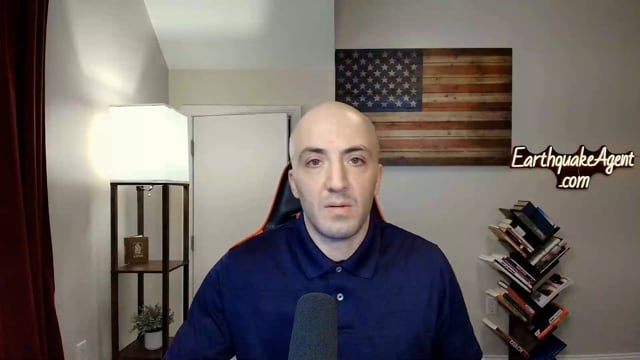
When purchasing earthquake insurance, one of the most important factors to understand is the deductible. Unlike standard homeowners insurance, which typically has a fixed dollar amount deductible, earthquake insurance uses a percentage-based deductible. This distinction can significantly impact how much you pay out of pocket after an earthquake.
Unfortunately, many homeowners assume they have no choice but to use California Earthquake Authority (CEA) coverage, which often comes with high deductibles and limited flexibility. However, private earthquake insurance providers offer lower deductibles, more customizable coverage, and better overall financial protection.
In this guide, we’ll break down how earthquake insurance deductibles work, why private earthquake insurance is the better choice over CEA, and how to select the right deductible for your needs.
What Is an Earthquake Insurance Deductible?
An earthquake insurance deductible is the amount you must pay out of pocket before your insurance policy starts covering the remaining costs. Unlike traditional homeowners insurance, where deductibles are fixed amounts (e.g., $1,000 or $2,500), earthquake insurance deductibles are based on a percentage of your home’s insured value.
For example, if your dwelling coverage is $500,000 and you have a 10% deductible, your out-of-pocket responsibility would be $50,000 before insurance covers the rest.
Why Private Earthquake Insurance Is Better Than CEA
The California Earthquake Authority (CEA) is often the default option when homeowners purchase earthquake insurance, but that doesn’t mean it’s the best. Here’s why private earthquake insurance is a superior choice:
✅ Lower Deductibles – While CEA deductibles start at 5% and go up to 25%, private insurers offer more flexibility, with options as low as 2.5%.
✅ Customizable Coverage – CEA coverage is rigid, while private earthquake insurance allows for tailored protection, including personal property, loss of use, and other structures.
✅ Better Financial Strength & Faster Claims Processing – Private insurers often have stronger financial backing and process claims more efficiently.
✅ No Forced Restrictions – CEA enforces higher deductibles for homes valued at $1 million+ and for older homes that haven’t been retrofitted. Private insurers, such as GeoVera and Palomar, provide better flexibility.Earthquake Insurance Deductible Ranges
Deductibles typically range between 2.5% and 25%, depending on your insurance provider, location, and home type.
Private Earthquake Insurance Deductible Options
✔ GeoVera (Available in CA, WA, and OR)
- Single Limit Program: 10%, 15%, 20%, and 25% deductible options.
- Coastal Select Flex Limit Program: 2.5% to 25% deductible options.
- No slope restrictions, and more flexible underwriting than CEA.
✔ Palomar (Available in CA, WA, and OR)
- Deductibles from 2.5% to 25%.
- No geographic restrictions, making it an excellent option.
✔ Zurich (Available in CA)
- Deductibles of 5%, 10%, and 15%.
- More flexibility in coverage than CEA policies.
CEA Deductibles (Higher & More Restrictive)
- 5%, 10%, 15%, 20%, and 25% deductible options.
- Homes valued at $1 million or more and those built before 1980 without retrofitting must have a minimum deductible of 15%.
- Limited options for customizing personal property and loss-of-use coverage.
How to Choose the Best Deductible for Your Home
Choosing the right deductible depends on your financial situation, risk tolerance, and premium costs.
1. Do You Want Lower Monthly Premiums?
✅ A higher deductible (15% or more) lowers your premium but requires you to pay more out of pocket after an earthquake.
2. Do You Want the Lowest Out-of-Pocket Costs?
✅ A lower deductible (2.5% to 10%) means you’ll pay less after an earthquake but have slightly higher monthly premiums.
3. Does Your Home Qualify for Better Coverage?
- If your home is worth $1 million+ or built before 1980, CEA forces a higher deductible.
- Private carriers offer more flexibility, making them a better choice for many homeowners.
Get a Free Quote & Find the Best Earthquake Insurance Policy for You!
Now that you understand how earthquake insurance deductibles work and why private earthquake insurance is the smarter choice, you can make a more informed decision about your coverage.
Final Thoughts
Many homeowners automatically default to the California Earthquake Authority (CEA) without realizing that better, more affordable private earthquake insurance options exist. By choosing GeoVera, Palomar, or Zurich, homeowners gain lower deductibles, better flexibility, and superior financial protection.
Get covered today and ensure your home is protected the right way.


